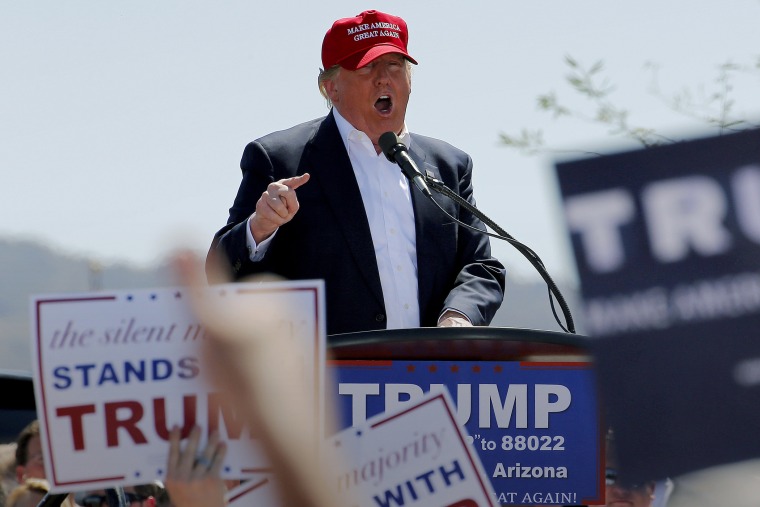But the campaign season progressed, and Trump's national support grew, there was a near-constant reevaluation of what, exactly, this ceiling might be. As of late yesterday, it appears we'll have to adjust our assumptions about the limits of his Republican backing once again. Here, for example, are the results from the latest national New York Times/CBS News poll:
1. Donald Trump: 46% (up from 36% in January)
2. Ted Cruz: 26% (up from 19%)
3. John Kasich: 20% (up from 2%)
A national CNN poll released soon after pointed in a very similar direction:
1. Donald Trump: 47% (down from 49% in late February)
2. Ted Cruz: 31% (up from 15%)
3. John Kasich: 17% (up from 6%)
An online poll conducted by NBC News and Survey Monkey pointed to a similar dynamic, with Trump leading Cruz, 45% to 24%, among Republicans nationally, followed by Kasich with 16%.
The good news for anti-Trump Republicans is that the frontrunner does not yet have 50% support. The good news for GOP establishment types is that Kasich has managed to consolidate much of the support from the also-rans. The bad news for both of these factions is that Trump's ceiling keeps climbing, and after months of controversy, bombast, and occasional violence, the frontrunner leads his next closest competitor in national polling by about 20 points.
Not to put too fine a point on this, but when was the last time a presidential candidate in either party failed to win their party's nomination while leading by double digits in late March? It's never happened.
Of course, it's still a state-by-state affair, and Republican voters will participate in two nominating contests today: the Arizona primary and the Utah caucuses.
In the former, polling is scarce, but Trump appears to be a strong favorite in Arizona, the first major contest in the West, and a state that allocates its delegates on a winner-take-all basis.
In the latter, recent Utah polling is even harder to come by, but the available evidence suggests Trump is not at all popular in the Beehive State and Ted Cruz appears to be on track as the likely winner. If the Texas senator can finish at 50% or above in Utah, he'll take all of the state's 40 delegates, which would help mitigate the damage from a loss in Arizona.
